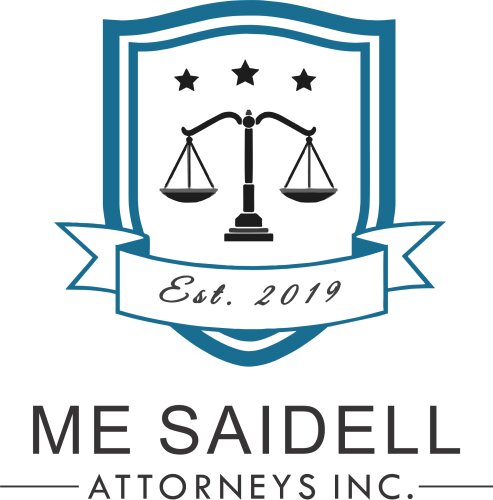Best Public-Private Partnerships (PPP) Lawyers in Johannesburg
Share your needs with us, get contacted by law firms.
Free. Takes 2 min.
List of the best lawyers in Johannesburg, South Africa
About Public-Private Partnerships (PPP) Law in Johannesburg, South Africa
Public-Private Partnerships, or PPPs, are collaborative agreements between government bodies and private sector entities designed to finance, build, and operate projects such as infrastructure, public transportation, power plants, hospitals, and more. In Johannesburg, South Africa, PPPs are a key strategy used to address service delivery and infrastructure needs where the public sector seeks expertise, efficiency, or financing from private partners. These partnerships allow for shared risks and resources, while aligning the interests of both public and private stakeholders to deliver effective public services and projects.
Why You May Need a Lawyer
Engaging in a PPP arrangement can be legally complex and involves significant financial, regulatory, and operational commitments. Individuals and entities might need a lawyer in the following situations:
- Drafting or reviewing PPP contracts or agreements
- Understanding regulatory requirements and compliance issues
- Assisting with the bidding or tender process for government projects
- Negotiating terms with government agencies or private partners
- Advising on risk allocation, dispute resolution, and performance guarantees
- Managing amendments to existing PPP arrangements
- Dealing with issues of financing, governance, or asset ownership
- Representing parties in disputes or arbitration related to PPP projects
A lawyer ensures that your rights and interests are protected while complying with all legal and statutory obligations in Johannesburg and across South Africa.
Local Laws Overview
PPPs in Johannesburg operate under a framework shaped by national and municipal legislation. The key laws and regulations include:
- Public Finance Management Act (PFMA): Governs PPPs at the national and provincial levels, including approvals and oversight functions.
- Municipal Finance Management Act (MFMA): Sets out processes focused on PPPs at the municipal level, directly relevant to Johannesburg’s local government.
- National Treasury PPP Manual and Standardized Provisions: Provides detailed guidance and standard terms for PPP agreements.
- Procurement Regulations: Outline procedures for fair and transparent tendering and selection of private partners.
- Sector-Specific Legislation: Depending on the nature of the project, other laws such as the Infrastructure Development Act or environmental regulations may apply.
Compliance with these frameworks is critical for both public bodies and private participants. Legal advisers help ensure all statutory requirements are met, transactions are properly structured, and approvals are duly obtained.
Frequently Asked Questions
What is a Public-Private Partnership (PPP)?
A PPP is a legally binding contract between a public entity and a private party where the private party performs a function or uses state property to deliver a public service or facility, often in exchange for payment, sharing of revenue, or other financial arrangements.
Who can enter into a PPP in Johannesburg?
National government departments, provincial governments, and municipal bodies can enter into PPPs with private sector companies, depending on the nature of the project and approval from the relevant authorities.
What types of projects are commonly undertaken by PPPs?
PPPs are commonly used for infrastructure projects such as roads, water and sanitation, power generation, hospitals, schools, and public transportation systems.
How are PPPs regulated in Johannesburg?
PPPs in Johannesburg are regulated primarily by the Municipal Finance Management Act and the Public Finance Management Act, as well as specific Treasury regulations and municipal by-laws.
What are the main steps in the PPP process?
The process typically involves project identification, feasibility studies, procurement and tendering, contract negotiation, securing approvals, implementation, and ongoing monitoring and management.
What risks are associated with PPPs?
Risks can include financial exposure, change in government policy, delays, construction risks, demand risks, and regulatory compliance issues. Clearly allocating and managing these risks in the contract is essential.
What role does the National Treasury play?
The National Treasury provides oversight, policy guidance, and approval for PPP projects, especially at the national and provincial levels. It also issues guidance materials and approves feasibility studies and contracts as required.
Can foreign companies participate in Johannesburg PPPs?
Yes, foreign companies can participate in PPPs, subject to local procurement and tender requirements, and any relevant sector-specific regulations or restrictions.
How is value for money assessed in PPPs?
Value for money is assessed through feasibility studies, cost-benefit analysis, risk assessments, and comparisons with conventional procurement methods to ensure that the PPP approach delivers superior outcomes for the public sector.
What happens if a dispute arises in a PPP project?
Disputes are generally resolved according to mechanisms described in the PPP contract, which often include negotiation, mediation, arbitration, or litigation as appropriate.
Additional Resources
If you are seeking more information or assistance regarding PPPs in Johannesburg, consider the following resources:
- Johannesburg City Council - Mayoral and Finance Offices (for municipal PPP procedures)
- National Treasury - PPP Unit (for manuals, guidelines, and project approvals for PPPs)
- South African Local Government Association (SALGA) - for municipal guidance
- South African Law Society - for referrals to qualified PPP lawyers
- Department of Public Works and Infrastructure - for sector-specific advice
- Business chambers and industry associations involved in infrastructure and development
Next Steps
If you are considering entering into a PPP or are already involved in one and need legal advice, follow these steps:
- Identify the type and scope of PPP project you are dealing with
- Gather all available documents, contracts, or correspondence relating to the PPP
- Consult a qualified legal professional with experience in PPP law and local Johannesburg regulations
- Discuss your objectives, concerns, and any challenges you are facing
- Work with your lawyer to address compliance, contractual, and risk management issues
- Engage with relevant government departments or regulators as needed
- Stay updated with regulatory changes that may affect your PPP arrangement
Early legal intervention can help you avoid common pitfalls, secure your investment, and ensure smooth delivery of PPP projects in Johannesburg.
Lawzana helps you find the best lawyers and law firms in Johannesburg through a curated and pre-screened list of qualified legal professionals. Our platform offers rankings and detailed profiles of attorneys and law firms, allowing you to compare based on practice areas, including Public-Private Partnerships (PPP), experience, and client feedback.
Each profile includes a description of the firm's areas of practice, client reviews, team members and partners, year of establishment, spoken languages, office locations, contact information, social media presence, and any published articles or resources. Most firms on our platform speak English and are experienced in both local and international legal matters.
Get a quote from top-rated law firms in Johannesburg, South Africa — quickly, securely, and without unnecessary hassle.
Disclaimer:
The information provided on this page is for general informational purposes only and does not constitute legal advice. While we strive to ensure the accuracy and relevance of the content, legal information may change over time, and interpretations of the law can vary. You should always consult with a qualified legal professional for advice specific to your situation.
We disclaim all liability for actions taken or not taken based on the content of this page. If you believe any information is incorrect or outdated, please contact us, and we will review and update it where appropriate.
















